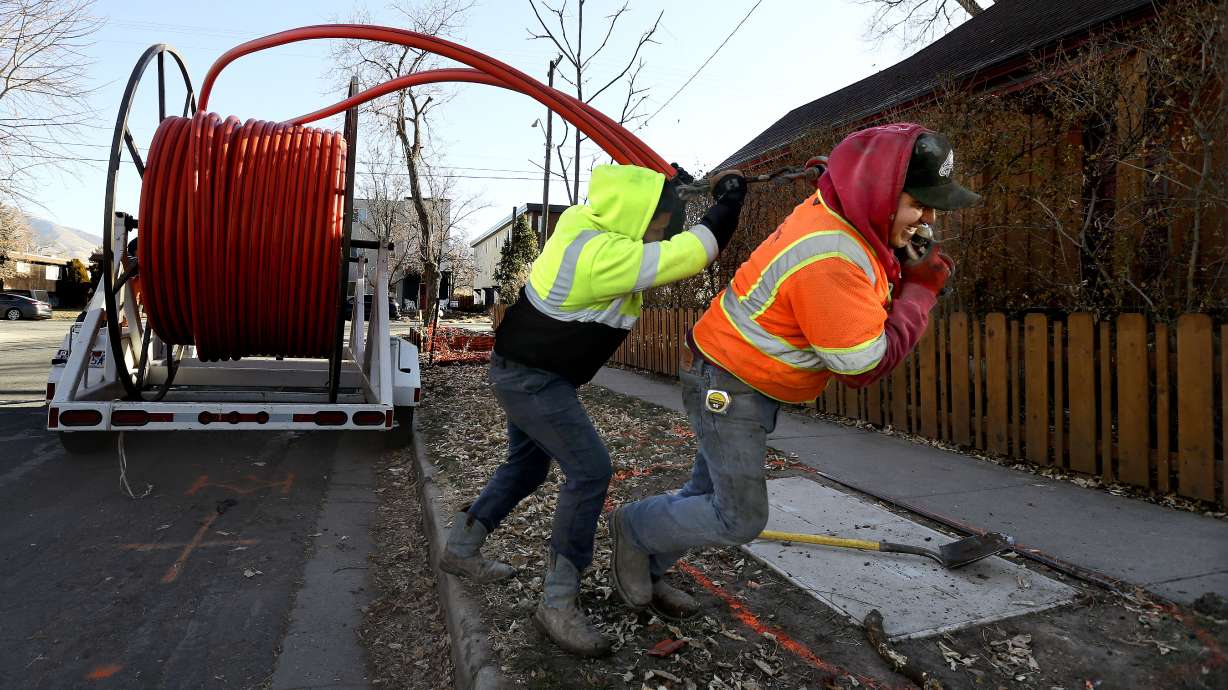Estimated read time: 3-4 minutes
This archived news story is available only for your personal, non-commercial use. Information in the story may be outdated or superseded by additional information. Reading or replaying the story in its archived form does not constitute a republication of the story.
SALT LAKE CITY — Utah will receive $317 million in federal funding to address disparities in internet access and affordability for residents after the Department of Commerce accepted the state's Digital Equity Plan, the agency announced Thursday.
"High-speed internet isn't a luxury anymore; it's become an absolute necessity," President Joe Biden said in remarks on broadband investment last year. "With this funding, along with other federal investments, we're going to be able to connect every person in America to reliable high-speed internet by 2030."
As part of the $2.3 trillion American Jobs Plan unveiled in 2021, the federal push to expand broadband to underserved communities has been compared to the 1936 Rural Electrification Act. "Broadband is the new electricity," a White House fact sheet said.
Christopher Ali, a professor of telecommunications at Penn State, wrote that similar to the electrification of farms and homes generations ago, "rural broadband is what economists call a 'market failure': a socially important service that the private market is unwilling to provide because of a lack of return on investment."
The acceptance of the state's plan pushes the project into a mapping process, where the state government is asking "community anchor institutions" such as schools, libraries, health care facilities, community support organizations and others to participate in internet speed tests and document shortcomings in internet service for their communities.
Locations without access to internet speeds below 25/3 megabits per second are considered unserved, and locations without access to internet speeds below 100/20 Mbps but at or above 25/3 Mbps are considered underserved, according to the state challenge process.
This challenge process is vital due to the significant shortcomings critics have pointed to in the National Broadband Map, which will determine whether a location receives funding. The map used by the Federal Communication Commission is deeply flawed due to large telecommunication companies, according to Ali.
Those companies self-report their data, which Ali says is not audited, and are only required to report advertised speed, not the actual speed of internet in communities, "giving the impression that communities are receiving much faster speeds than what consumers are actually experiencing."
The state broadband office has addressed other discrepancies in the national map by limiting the technologies, like DSL and satellite, that internet providers can count as serving communities, and adding more granularity to less populated areas.
Utah Broadband Center director Rebecca Dilg said this is a "generational opportunity" to get high-speed internet to everyone in Utah.
The broadband availability map, registration, and Challenge Process Portal are open, where anyone can find more information on the project. Individuals hoping to challenge their home or business internet speeds can submit tests until May 28. After community input, internet service providers will have 40 days to respond to challenges made to their service. The state's broadband office will make a final determination before the grant window opens in the fall.









